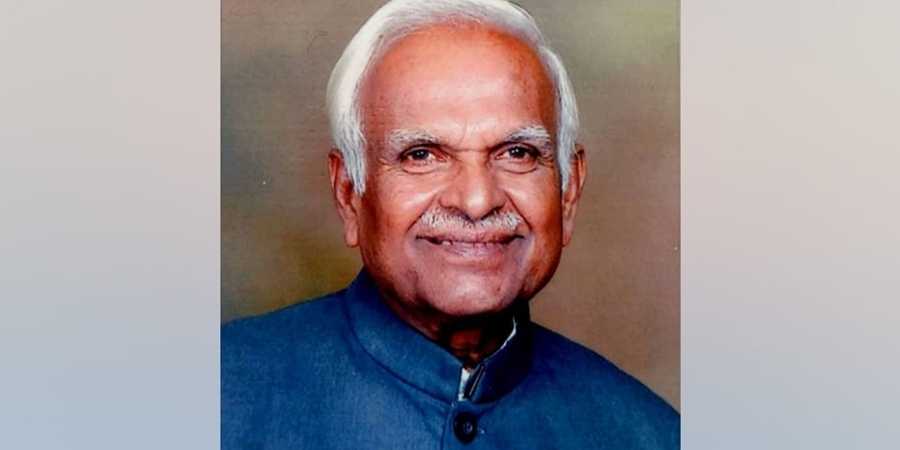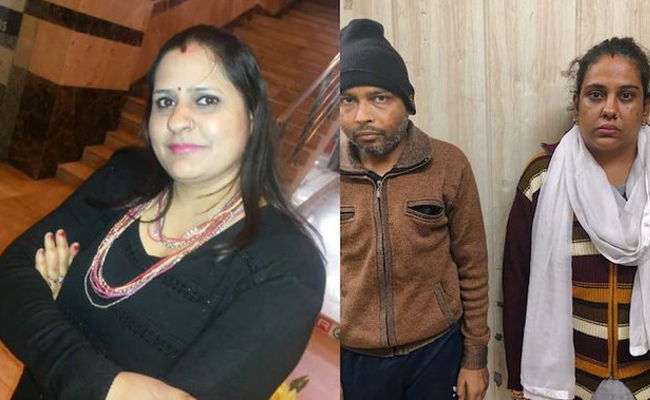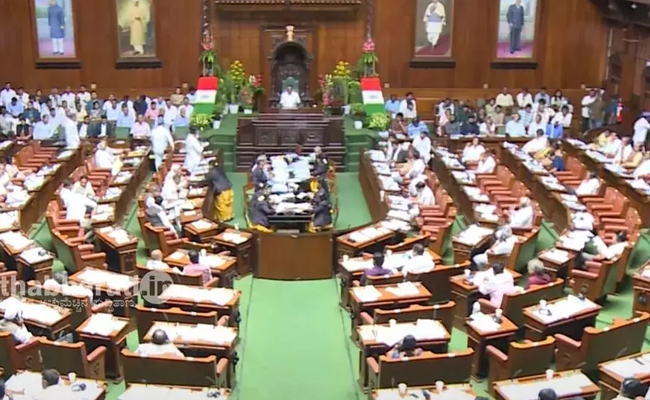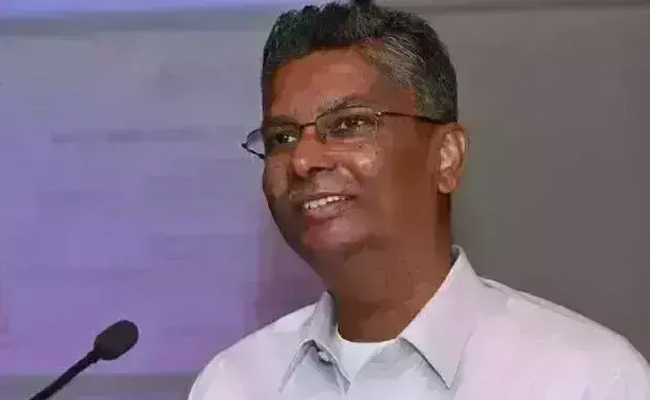Bengaluru, May 21: Former Speaker of the Karnataka Legislative Assembly Krishna, popularly known as K R Pete Krishna, died at his Mysuru residence on Friday, sources close to him said.
Krishna (80), suffering from cancer, had undergone treatment at a private hospital in Chennai.
He is survived by wife and a daughter.
The last rites are likely to be performed at his native village Kottamaranahalli in K R Pete taluk of Mandya district on Saturday, sources said.
Krishna had served as Animal Husbandry and Sericulture Minister in S R Bommai cabinet and had represented K R Pete Assembly constituency thrice in 1985, 1994 and 2004 from Janata Party, Janata Dal and JD(S).
He had represented the Mandya Lok Sabha seat in 1996 and served as the Speaker of Karnataka Legislative Assembly from 2004-08.
Krishna was known as a simple and gentleman-politician.
Expressing condolences, Chief Minister B S Yediyurappa remembered Krishna's popularity among the people starting from his political career as a member of K R Pete Taluk Board, and the way he upheld the parliamentary values as a Speaker.
Former Prime Minister H D Deve Gowda, expressing grief, said he is deeply pained by Krishna's death.
Several Ministers of the State cabinet, JD(S) leader H D Kumaraswamy, State Congress chief D K Shivakumar have also expressed condolences, while Leader of Opposition Siddaramaiah travelled to Mysuru to pay his last respects.
Let the Truth be known. If you read VB and like VB, please be a VB Supporter and Help us deliver the Truth to one and all.
Ghaziabad(UP) (PTI): A 48-year-old woman was killed allegedly by her tenants when she went to their flat to collect rent, police said on Thursday.
The deceased, identified as Deepshikha Sharma, was killed around 11 pm at Aura Chimera Society, Assistant Commissioner of Police (ACP) Nandgram Upasna Pandey said.
Preliminary investigation revealed that Deepshikha and her husband, Umesh Sharma, owned two flats in the society, one of which had been rented out to a couple.
She went to the rented flat to collect rent but did not return till late night, raising suspicion.
Her maid, along with neighbours, went to the flat to look for her, following which Deepshikha's body was recovered stuffed inside a red bag from the flat, the ACP said.
Police were informed at around 11.15 pm through the PRV, after which a team reached the spot and arrested the couple, identified as Ajay Gupta (35) and Akriti Gupta (33), she said.
A case was registered and the body was sent for post-mortem examination. Further investigation is underway, the ACP added.
#WATCH | Amethi, UP: On Landlady murdered over rent dispute, UP Women Commission Member Priyanka Maurya says, "... This incident has disgraced humanity. It is saddening and painful to hear about incidents like this. The couple have been arrested, and I believe strict action will… pic.twitter.com/Nj88sbYmHg
— ANI (@ANI) December 18, 2025





